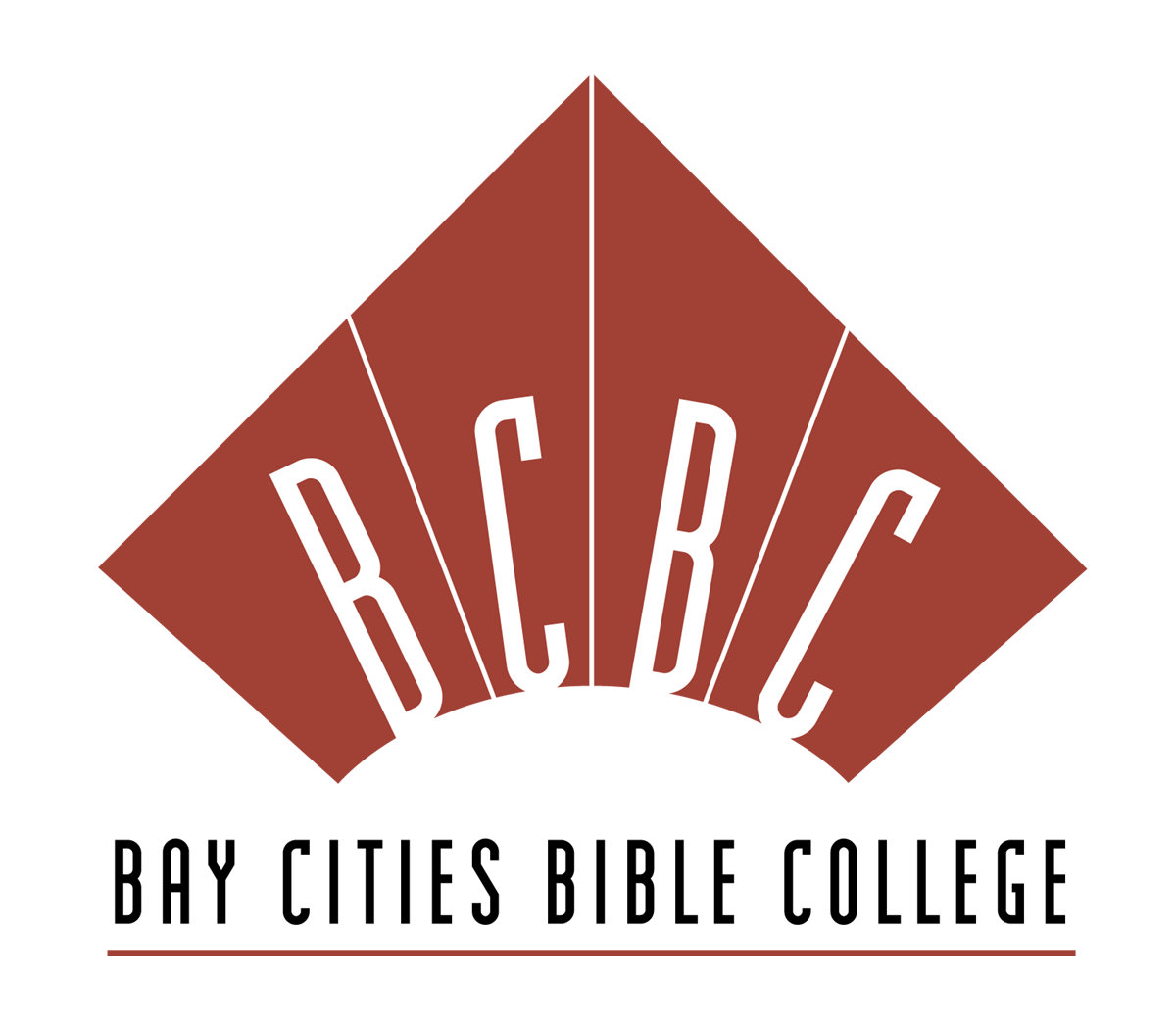
Master of Arts in Biblical Studies
The Master of Arts (M.A.) degree program in Biblical Studies is available for graduate level students with an undergraduate Biblical degree. To earn the masters degree, they must complete at least 57 quarter units as follows: 15 graduate level core courses for 45 quarter units, prepare and defend an acceptable thesis/project for 6 quarter units, compete 3 quarters of Student Ministry (1 unit per five academic courses at BCBC, requiring active involvement in Christian service under the mentorship of a local pastor for a minimum of 30 hours of service/quarter. Students without undergraduate Hebrew or Greek must make up the Hebrew and/or Greek requirements as a prerequisite to entering the graduate program.
A Master of Arts (M.A.) degree program in Biblical Studies is also available for graduate level students with an undergraduate degree in a subject other than Biblical Studies. To earn the masters degree, they must complete at least 57 graduate quarter units as follows: 15 graduate level core courses for 45 quarter units, prepare and defend an acceptable thesis/project for 6 quarter units, compete 6 quarters of Student Ministry (1 unit per five academic courses at BCBC, requiring active involvement in Christian service under the mentorship of a local pastor for a minimum of 30 hours of service/quarter. In addition, they must also complete 45 undergraduate quarter credits as follows: 12 quarter units in Biblical Studies (including Bible Interpretation), 9 quarter units in Systematic Theology, 9 quarter units of introductory NT Greek and 9 quarter units in introductory OT Hebrew.
Graduate Core Courses
At least six of the following courses in Bible Exegesis:
FALL QUARTER
Greek Exegesis I
Hebrew Exegesis I
Bible Exegesis I
WINTER QUARTER
Greek Exegesis II
Hebrew Exegesis II
Bible Exegesis II
SPRING QUARTER
Greek Exegesis III
Hebrew Exegesis III
Bible Exegesis III
And include each of the following:
FALL QUARTER
Old Testament Theology
Old Testament Introduction
Ministry Elective I*
Advanced Hermeneutics
Thesis I
WINTER QUARTER
New Testament Theology
New Testament Introduction
Ministry Elective II*
History of Israel
Thesis II
SPRING QUARTER
Dispensational Issues
Biblical Criticism
Ministry Elective III*
Research Methods
Thesis Defense
*Electives may include the three remaining Bible Exegesis courses, or tailored electives based on the interest of the individual student.
Master of Arts Degree: Emphasis Options
Emphasis in New Testament
Greek Exegesis I, II, III 9 units
Bible Exegesis I, II, III 9 units
OT & NT Theology, Disp 9 units
OT & NT Intro, Bib Critic 9 units
Ministry Electives 9 units
Research & Thesis 6 units
Student Ministry 3 units
Total: 57 units
Emphasis in Old Testament
Hebrew Exegesis I, II, III 9 units
Bible Exegesis I, II, III 9 units
OT & NT Theology, Disp 9 units
OT & NT Intro, Bib Critic 9 units
Ministry Electives 9 units
Research & Thesis 6 units
Student Ministry 3 units
Total: 57 units
Emphasis in Biblical Exegesis
Greek Exegesis I, II, III 9 units
Hebrew Exegesis I, II, III 9 units
Bible Exegesis I, II, III 9 units
OT & NT Theology, Disp 9 units
OT & NT Intro, Bib Critic 9 units
Research & Thesis 6 units
Student Ministry 3 units
Total: 57 units
Ministry Elective Options
Biblical Preaching I, II, III 9 units
Christian Education courses 9 units
Christian Counseling courses 9 units
THESIS PREPARATION
The Master of Arts (M.A.) degree program in Biblical Studies is primarily a research degree. Students must be able to analyze relevant material and be able to interact on a scholarly level with the present level of information. Students will be evaluated throughout the degree as to their level of research and advised accordingly.
The thesis should be an ongoing process throughout the Graduate Program. From their entrance into the program, students should already be thinking critically about their final research assignment. Thus there will be deadlines to be met in completing the required thesis. The grading system for the thesis will be an ongoing process, with grades given for each part in the thesis development.
After six completed courses at the Graduate Level (1/3 complete):
The student should propose a thesis topic to the Graduate Studies department. This thesis proposal should include a title proposal, an idea of where the research will lead the student, and evidence of research already carried out on the proposed topic.
The student will then be interviewed based on the proposal, and the topic modified or changed according to the student’s ability. Upon acceptance of the topic, a thesis adviser will be assigned for the student. This adviser will guide the student through the thesis process.
After twelve completed courses at the Graduate Level (2/3 complete):
The student will sit down with the adviser and discuss progress made towards the thesis. The student should present a more detailed proposal into his thesis in the form of a five-page abstract. This abstract should show the direction of the student’s present research. The student should include an outline for the thesis as part of this abstract.
After completion of the required course work at the Graduate level:
The student should show a substantial level of research in terms of the development of a bibliography. Each of the chapters of the thesis should now be in outline form. This outline should be presented to the advisor for final approval. An additional faculty thesis reader will now be assigned to the student.
Thesis Preparation I
At the end of the first quarter of thesis preparation, the student should present the first two chapters to the Graduate studies office. The advisor and reader will fine tune the thesis and give a grade based on the student’s present research.
Thesis Preparation II
By the end of this second quarter of thesis preparation, the student should have completed a first draft of the entire thesis. This draft must be approved by the advisor and reader before proceeding.
Thesis Defense
Upon presentation of an acceptable final draft of the thesis, the student will schedule a defense of his work at which time the student will explain his thesis, his research methods, and his conclusions. A grade will then be given for the entire process.
